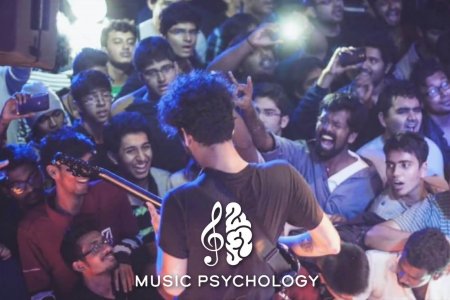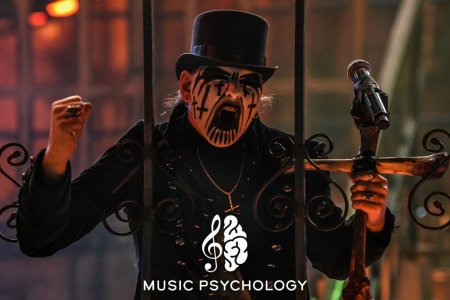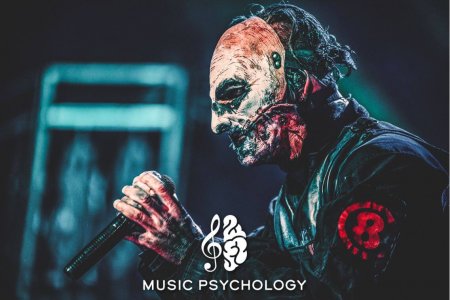Dear readers, in the Music Psychology series, we would like to offer you a view at seemingly obvious topics within the music world from a different perspective. This time it will be about Behavior at Concerts. My guest is a respected music therapist and a member of the board of Music Therapy Association of the Czech Republic (CZMTA) PaedDr. Lubomír Holzer. You can check the first episode here with the background of this series, as well as more information about Mr. Holzer.
Photos: Milan Říský
Originally came out in 2015/07 issue of Czech magazine Muzikus.
English translation credit: Lucie Jurigová
I’m sure I’m not the only one who thinks that fans switch into a different mode when they come to a concert. Does the environment, the crowd and the music really switch a person into a condition where he or she is suddenly wilder and often out of control? On the other hand, some people are suddenly more thoughtful and considerable of others.
C. G. Jung already came up with the phenomenon of the collective unconscious, R. Sheldrake talked about the existence of morphogenetic fields and D. Bohm introduced the theory of implicit order. All of the mentioned men reflected on the nature of the human psyche beyond the human being. Many processes of our individual or collective behavior, experiences and reactions justify these reflections. At every mass event there are very similar characteristic processes of behavior. There is also a so-called mirroring. What I perceive, that‘s what I do. We call this “metapsychic transference” which involves mental and emotional energy that can be transformed into physical action. That’s how the mass behavior can easily arise at a concert, but we can observe the same patterns at mass lynching, crowd psychosis or during an adoration of a spiritual leader etc. In the case of music concerts, it means an interaction with the band, their music, show, costumes, masks, appropriately powerful sound equipment, lights, effects and our expectations, moods and reactions during the concert. The recipients who behave differently, also confirm this phenomenon to a certain extend. They might be very considerable, but they may also have some barriers that keep them from fully enjoying the live music experience and everything associated with a concert. The other possible explanation of the moderate behavior could be a personal experience with collision behavior associated with preventive consideration, but also an internal fear of something catastrophic that might happen.

The human organism cannot sustain this overproduction permanently and therefore, after some time, a condition and behavior change will occur.
It might not be his fault
This is certainly a well-known experience from alcohol/drugs rehabilitation center, but we meet those people at concerts all the time. Into what mode does a heavily drunk or drugged fan switch after intoxication? I just remembered one, who recently got into a fight with half the crowd at Pain of Salvation & Anneke van Giersbergen show in Prague and snapped out of the police hands again and again. When I ran into him afterwards at the festival, I told him that he had ruined our concert experience. He apologized by saying that his brother had died, so he got very drunk and high before the concert.
Drug and alcohol abuse is characterized, among other things, by a loss of self-control and a tendency to emotional outbursts and explosions. The combination of alcohol and drugs is a guaranteed trigger for excessive behavior. In these cases, the endocrine system is also strongly affected, which brings an explosive level of hormones. The human organism cannot sustain this overproduction permanently and therefore, after some time, a condition and behavior change will occur. It is possible to see such a person, during a single event, in both modes. Many people try to solve their stress excitation by using alcohol or drugs. The result is predictable.

Mass behavior can easily arise at a concert, but we can observe the same patterns at mass lynching, crowd psychosis or during an adoration of a spiritual leader etc.
When we are young, we don’t need any aids, as we can reach a state of ecstasy when we see our gods/idols coming on stage. Why is that?
The human ability to reach an ecstatic state is innate. However, it is conditioned by the cultural-historical framework, pedagogic and educational models and ongoing life experiences associated with clinging to life roles. This is how we create limitations and obstacles on the natural way of reaching ecstatic states without any use of drug substances and strong external factors. Members of natural communities cultivate this ability from childhood. That’s why a young person doesn’t have such an impenetrable network of internal limits yet, which could keep him from starting and achieving natural ecstasy more quickly, and therefore he doesn’t need any external stimulants.





